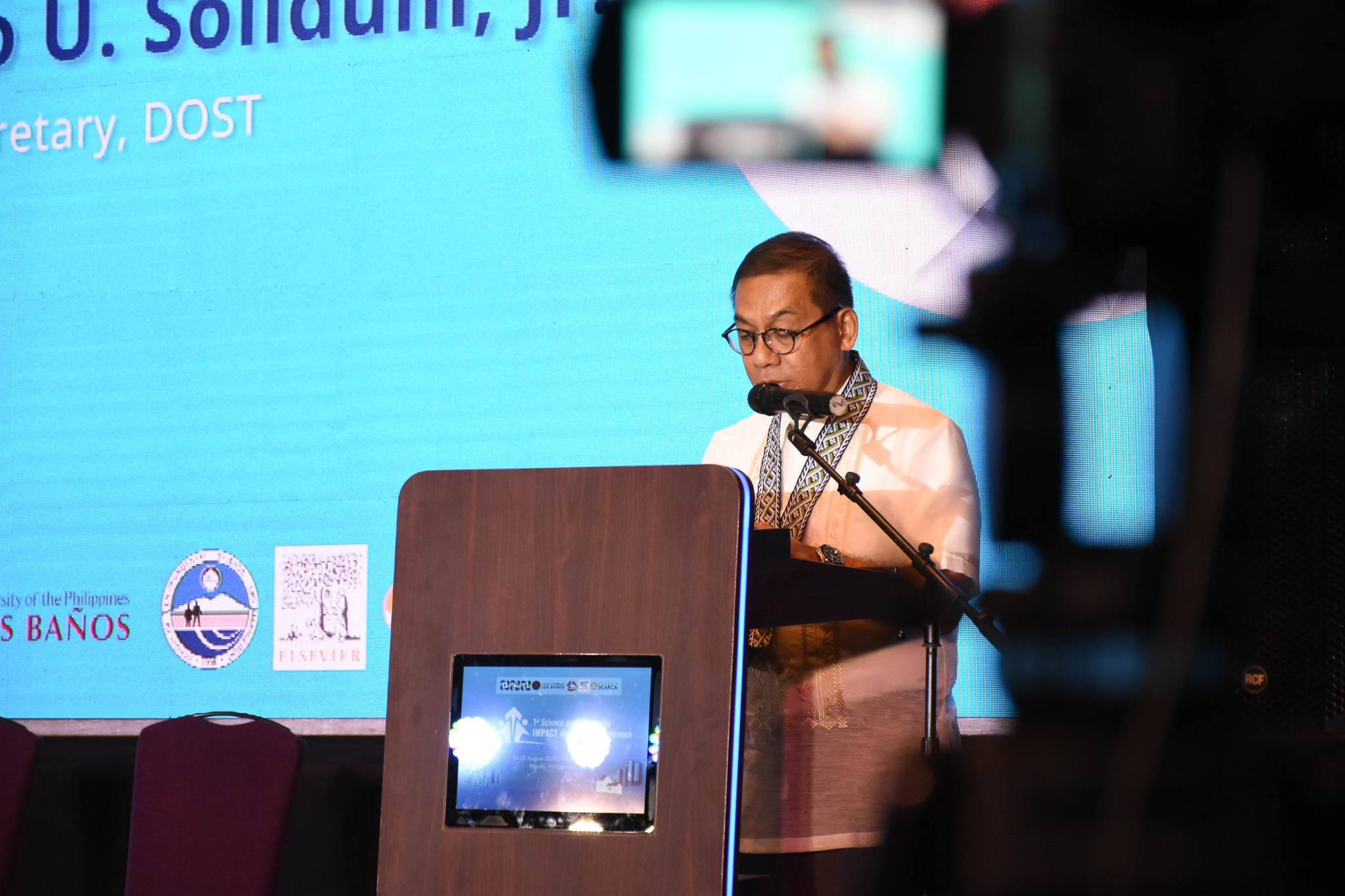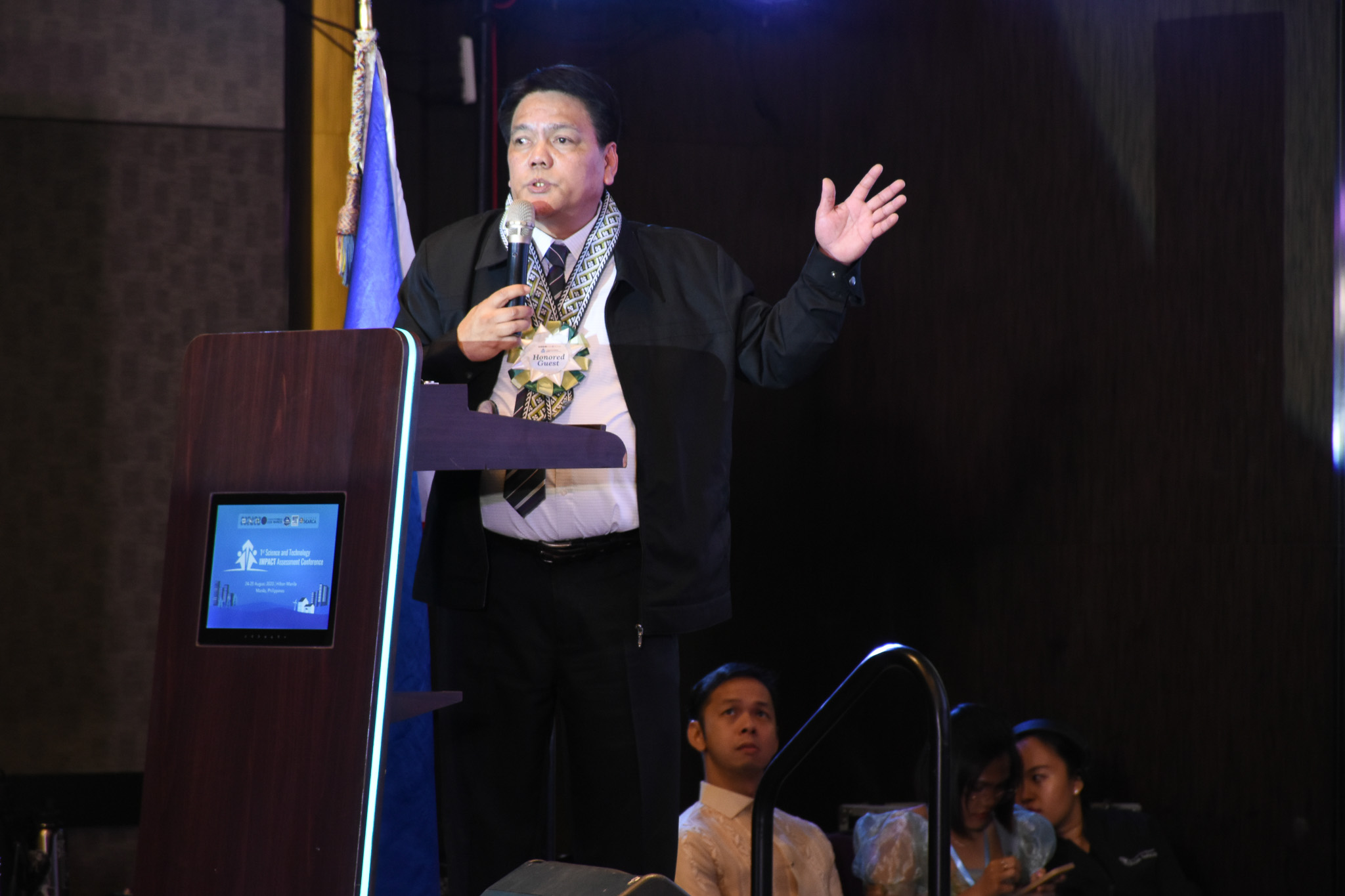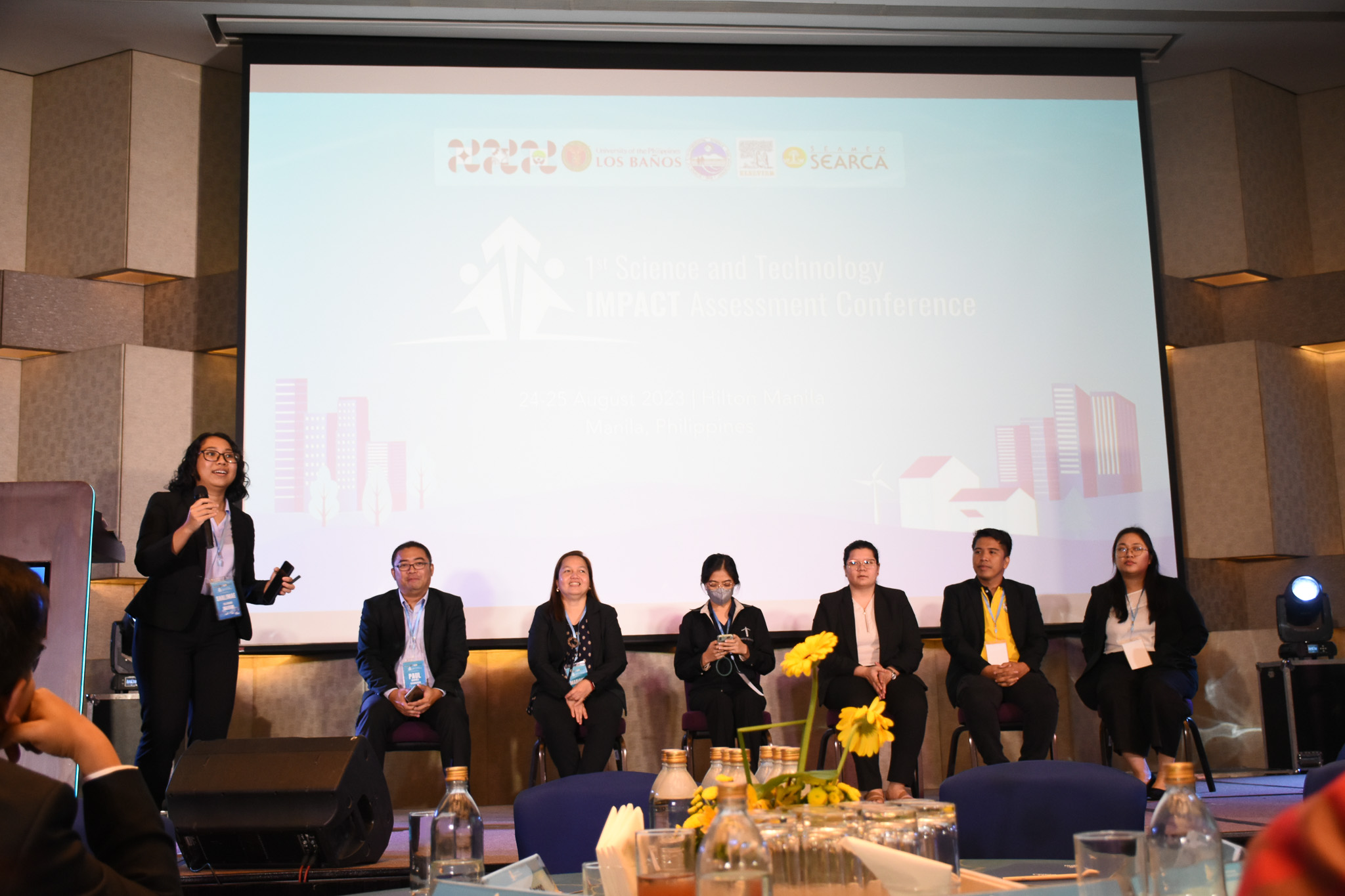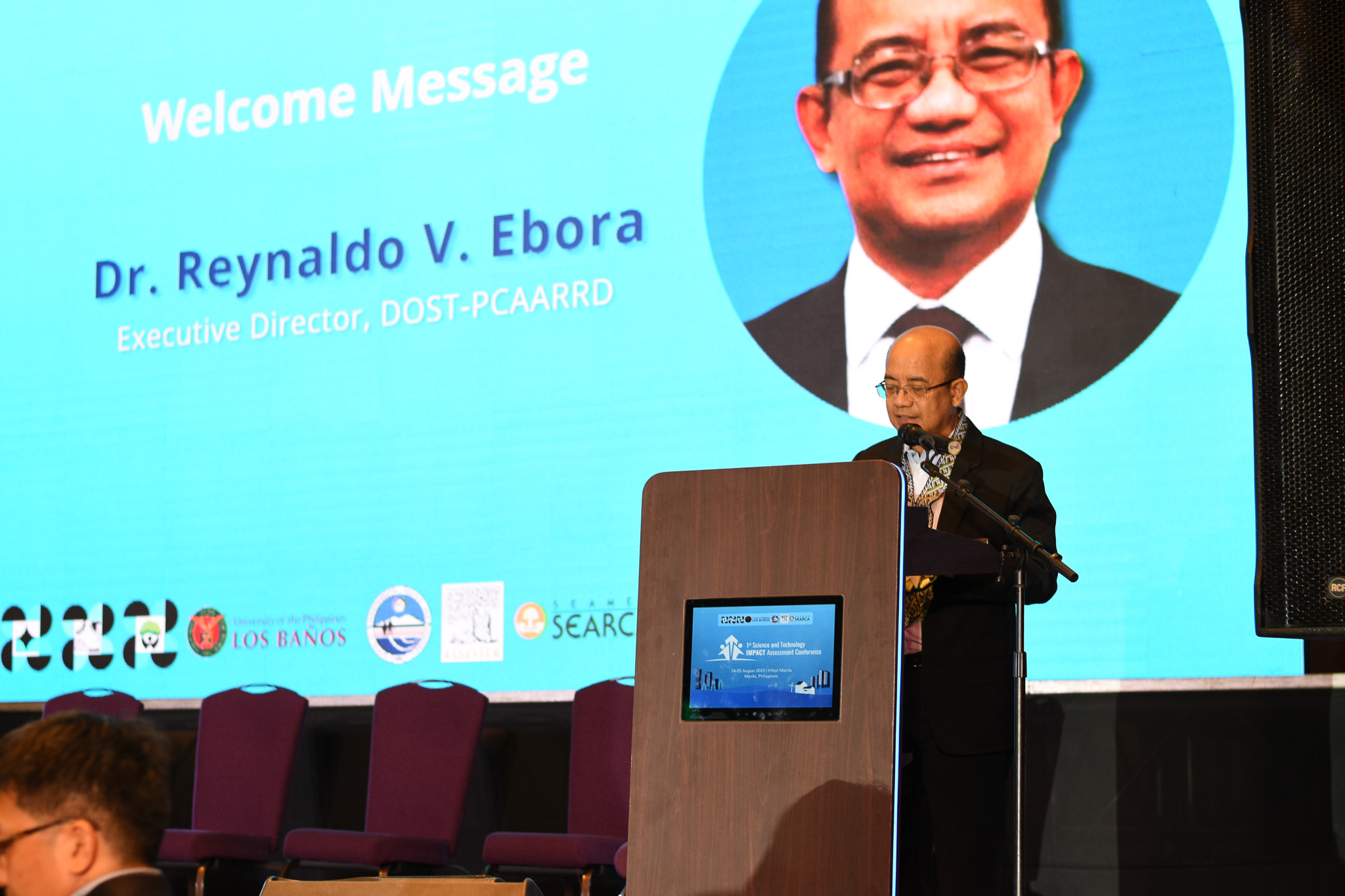Local and international research and development communities recently convened at the 1st Science and Technology Impact Assessment Conference in Pasay City. The conference recognizes the critical role of impact assessment in the field of science and technology (S&T). As a key element in the innovation ecosystem, impact assessment allows S&T interventions to be more effective in stimulating national socioeconomic growth and development.
Setting the stage for the event was Dr. Reynaldo V. Ebora, Executive Director of the Philippine Council for Agriculture, Aquatic and Natural Resources Research and Development of the Department of Science and Technology (DOST-PCAARRD). As one of the pioneers of impact assessment in the government, DOST-PCAARRD attributes impact assessment initiatives in creating lasting changes in agriculture, aquatic, and natural resources (AANR) sectors.
According to Dr. Ebora, impact assessment allows institutions to make the most out of limited resources through smarter decision making. He further shared that impact assessment information helps in prioritizing public funds for programs and projects that generate optimum benefits for Filipinos.

In his keynote message, DOST Secretary Renato U. Solidum Jr. also highlighted the role of impact assessment in ensuring that government investments in R&D initiatives contribute to progress and innovation. With increasingly scarce resources, Secretary Solidum expressed the significance of impact assessment studies in ensuring the returns on investment on R&D to the government.
“It is our duty to ensure that results from scientific and technological efforts are geared and utilized in areas of maximum economic and social benefits for the people,” Secretary Solidum expressed.
DOST-PCAARRD: Going beyond institutional R&D

Dr. Ernesto O. Brown, Director of the Socio-Economics Research Division (SERD) at DOST-PCAARRD, discussed the council’s impact assessment initiative. Dr. Brown said, “PCAARRD’s impact assessment efforts for R&D and technology transfer in AANR were established to determine and quantify the socioeconomic contribution of the funded programs and projects to the growth and development of the sector.”
Impact Assessment has been an integral part of DOST-PCAARRD’s banner programs. Upon recognizing the need for an intensive monitoring and evaluation system, SERD reinvented the council’s approach to conducting impact assessment to cater to different perspectives of development. Since the 1980s, it has been the Council’s practice to enact impact assessment studies in forecasting and evaluating major S&T initiatives of DOST-PCAARRD on R&D, technology transfer, capacity building, and policy making. The outcomes of such initiatives then played a crucial role in accounting for S&T investments, program conceptualization and development, resource allocation, and direction setting.

With the goal of socioeconomic development, DOST-PCAARRD’s initiative has brought a deeper understanding of the role of R&D in nation-building. As such, the council ensures that generated knowledge is shared with the public. Currently, the council has released multiple publications on the impact assessment of various DOST-PCAARRD-funded projects through the Impact Assessment Bulletin. All of which are available at the DOST-PCAARRD eLibrary, elibrary.pcaarrd.dost.gov.ph/slims.
Moving forward, DOST-PCAARRD aims to widen the reach of its impact assessment initiatives. The Council is also open to providing assistance to other institutions in setting their own impact assessment activities. It is within the Council’s vision to institutionalize impact assessment to create long-lasting change for the country.

